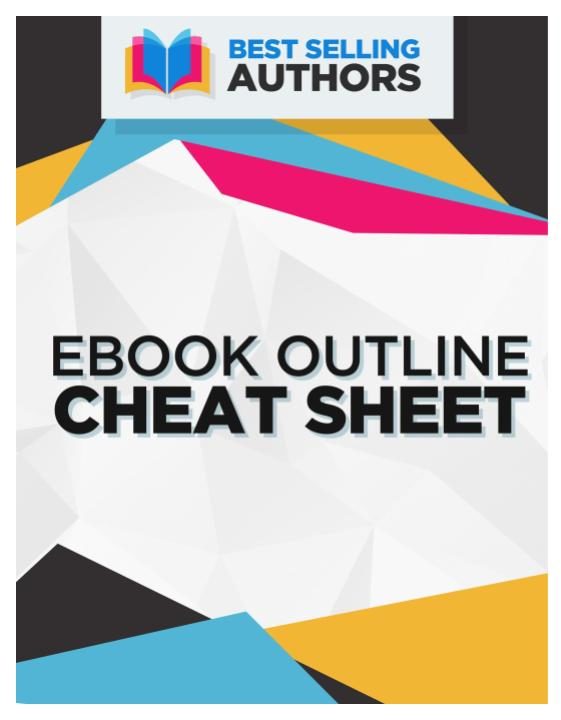
Want to be a bestselling author? Start by using our system. Here’s how to write a book the bestseller way.
How to Write a Book
When new authors ask me how to write a book, I start by focusing on marketing. As an author today, you need a promotion plan for yourself and your book before the writing begins. Every rich and famous author I know will tell you the same story. Book marketing and promotion sells books.
No matter where you are in the process of creating your best seller, do not put off setting up a roadmap for to market and promote.
Marketing is 90% of the business of being an author.
Set Goals for Your Book
Occasionally, I meet authors who enjoy a cathartic process in their writing. Some authors don’t care if anyone ever reads what they write. If that’s you, great… write your heart out.
My assumption is that readers of a book marketing blog are interested in having readers and that usually means having readers that benefit from you reaching your goals.
Why do you want to write a book?
When setting your goals, I suggest you envision that a million people will find out about your book. Describe your dream come true:
How will your book change the world?
 Many new authors don’t have an answer to this simple question. That’s OK. The drive to write often comes before you know the answer.
Many new authors don’t have an answer to this simple question. That’s OK. The drive to write often comes before you know the answer.
It’s important to know your goal… Pause right now and write down your answer.
Successful authors know why they are writing a book. Most want to get more recognition for an idea or leads for their business. Some just want to share what they’ve learned. You will discover that as you define your goal clearly you can easily create a book and promotion plan that leads to that goal.
What is your goal? Who do you want as a reader? And most of all… What do you want them to do after reading your book?
In my experience, getting the goal down to a finite sentence is the essence of how to write a book that sells.
Answer Your Reader’s Questions
Once you know your goal, and the outcomes you can promise your readers, there is one other step that will do the most to enhance your chances to create a best seller
Create an outline before you start to write.
It’s just like you were taught in school. A simple outline is your roadmap to writing a book that will lead to you goals, fulfill it’s promise to readers, and become a best seller. Fortunatly, there’s no one grading this outline so you don’t need to worry about perfection. Just get it out and ON PAPER.
Start by asking “What are the basic questions someone would ask about the topic?” List these questions. The answers will become the chapters for your book. Add a few key points that you need to make on each of, and you soon have the framework for an entire book.
If you have a step by step approach to get the results or outcome your book promises, you can use each of these steps as a chapter, or arrange the questions you answer to lead through your process.
Using the answers and the step by step approaches together get you a list of chapters. Edit that list to just the ones you want to cover and you will have most of the outline.
Add an introduction, a narrative of your own story (how you got to the point of writing this book) to make it personal and interesting. I usually save this writing for last, then put it at the beginning of the book.
The Fast Way to Write May Be NOT Writing
I create most of my content with a computer and keyboard. Works great for many people, but there is a faster way to write (also the easiest): talk your book
 Once you have an outline of chapters and key points, you can create the chapters in any order.. just by taking your book. As an expert on your topic, you likely get asked questions about your topic every day. In the course of a week, you will probably produce more than enough information to fill a book.
Once you have an outline of chapters and key points, you can create the chapters in any order.. just by taking your book. As an expert on your topic, you likely get asked questions about your topic every day. In the course of a week, you will probably produce more than enough information to fill a book.
The trick is to record yourself as your focus on one of chapter. Using your outline, you can quickly cover the topic and key points for that chapter. When that’s recorded and transcribed you’ll have a rough draft in no time.
Speaking into a recorder can be intimidating. Try one of these instead:
- Hire an editor or writer to work as your co-author. Once they become familiar with you and your outline of chapters, set up a phone conference line with recording and have them ask the questions and keep you on focused as you provide answers, stories, explanations and comments. You’ll find that having a listener on the line makes it easier, and using your editor will allow them insight and input during the process.
- Use what you already have. If you’ve been a guest on a teleseminar or radio program, given a speech on your topic or written articles, you likely have more material than you think… ready to add to your book. We start most projects by taking an inventory of these assets and our authors are surprised when they see the list. A good editor can place your existing content into chapters in your outline much quicker than you thought possible.
- Blog your book content. If you don’t have content, start creating it in pieces. Many a book has started as a series of blog posts. I used some posts to start Twitter Revolution as the first step in that book. We added a polls and questions (on Twitter of course) and invited other experts on a radio program that we transcribed. We had hundreds of contributors and a rough draft in just a few weeks with hundreds of pages more than we needed. We edited it down to the best, and got the first book out about Twitter.
- Sell Your Information First. Information marketers know that the content of a book is more than enough material to create a seminar. The reverse it also true. Teach a course in person, in training classes, on the phone or on a webinar. Most of the material created for the course will be useful for your book. Make sure it’s recorded and transcribed.
Successful books today are usually not the result of years of research annotated with mounds of footnotes and strict academic standards. The writing style of college and universities is not going away, but most non fiction books, especially the best sellers, don’t use this strict style.
For most readers, the quality of a book comes from finding a connection with the author and actionable advise that gets them closer to their own goals… or leads them to a next step you can provide. Writing a book that focuses on the reader’s goals will create a best seller and let you reach your goals.
Quality writing, editing, proofreading and production for your book is important. Fortunately, there are professionals to help you produce this quality. Your job is expert content; you can hire others to polish your writing, fact check, edit and proofread your book.
What Sells Books
 As a reader and author, I care about the quality of the books I read. I wish I could tell you that a well written book is what sells best.
As a reader and author, I care about the quality of the books I read. I wish I could tell you that a well written book is what sells best.
Quality matters. Without good content, your book won’t achieve your goals, and could hurt your reputation… However, 95% of what sells a book is outside of what is written on the pages.
Here’s why:
- Most of the readers looking for a book will miss your book. Even an International Best Seller is never seen by the majority of the population. My friend Mark Victor Hansen has sold 200 million books, but still introduces himself as “Co-creator of the Chicken Soup for the Soul series”. When Mark told me that he does this because he is often not recognized, I started asking people I meet.. amazed how often someone replied “Mark who?” If they don’t see your book, the won’t buy it and will never read it
- Most of the books purchased are not read. I’ve seen surveys of book buyers where 90% admitted that they wanted to read a important title, but after 2 years had not got past the first few pages. You can do a lot of good for the people that finish reading your book, but to reach them, you’ll need to also market to the many who want what you offer, but never read or even purchase a copy.
- It’s highly unlikely that the person buying your book has already read your book. While you can assume that your good book will be recommended by those who read it, the decision to buy is most likely made by someone who hasn’t read your book. A reader has to buy your book before they get a chance to find out how good it really is.
This is not an excuse to ease up on the quality. It is a good reason to follow this advice:
You can’t judge a book by it’s cover… but you will sell more with a good cover
The buying process for a book is typical of what you do in a bookstore (A similar process happens online).
First, you pick up a book that gets your attention, you read the cover, then flip to the back cover, and then open the book to look at the dust jacket copy, the front matter (title page, reviews, table of contents) and maybe the forward, preface and first chapter.
Any of these steps can be the trigger that causes a reader to buy your book. Endorsements, reviews, and a well written synopsis will increase your sales.
If you are following my advice and marketing yourself, cross promoting with other authors, and building a network in your niche, you can count on reciprocity from these authors when the time comes from them to review your draft and give you a blurb.
Think about how many books you buy on the recommendation of someone… The selling power of trusted recommendation is so important that I counsel authors to start building a network before they start writing their book, continue networking during the writing process, and include your network with interviews, updates on your blog and regular communication.
One of the common requests I get when consulting authors on marketing and launch promotion campaigns is in gathering endorsements. I reach out to my network for clients and find that most authors want to help, especially if they have a sense of reciprocity coming from the author or me. Building real relationships is time consuming, but a key factor in getting your book accepted and shared by thought leaders.
A recommendation from a trusted thought leader to their followers becomes a leverage point in your marketing campaign. Technology makes this possible for any author. Social media tools help to create real relationships.
Writing a Book As Your Marketing Strategy

Start with a commitment to build an audience and serve them and you’ll be a best seller
Whether you write a book to share your message, or develop leads for your business, the creation process is an amazing opportunity to market yourself.
Waiting till the book is finished to market will waste a huge opportunity. So start today.
Now that you know how to write a book that sells, it’s time to get started building your network, connecting with thought leaders and positioning yourself as the expert author who will write a book.
No matter where you are in the process today, use this process to get your book out faster, with quality content, positioned to reach the market. You will reach your goals and have more fun in the process.



Great “in a nutshell” how-to-write-a-book advice. Who, you; also what, why and (when) now! -Darlene from opalagate.com
Glad you liked it. Are you writing a book?
Very helpful article Warren. Gets right to the heart of the matter. I recently wrote a book and have sent it around to a few people to get feedback and testimonials (which have been good). I’m using this article to review the book and improve the cover, back cover, front matter to make it more marketable.
You’re the best!
Geri Winters
You write great books. I’d be honored to review it. Email me for a testimonial [email protected]
I will. I’ve just been swamped with the holidays! Hope you have had wonderful holidays and that your 2011 is wonderful.
Thanks for stopping by and for your continued support
THANK YOU WARREN WHITLOCK,you are the best,very good advice,michael j robinson.
Thanks for the comment.. and for sharing this post. Great to have Michael as one of my frequent connections
Great tips! I have worked with quite a few people who are more comfortable “talking their book” than they are sitting down at the computer to write. All it takes is a few notes and a good transcriber, and you’ve got a rough draft!
Thanks for sharing.
Melinda
http://www.writerssherpablog.com
thanks for you comment
“Quality writing, editing, proofreading and production for your book is important. Fortunately, there are professionals to help you produce this quality. Your job is expert content; you can hire others to polish your writing, fact check, edit and proofread your book.”
So true, but I don’t think this otherwise excellent post got that treatment!
Absolutely right. I rely on the expert readers who point these things out.
Excellent guide Warren, thank you! It is clear, at least to me gives me courage to start planning and writing.
That was great. I am very intimidated about the book writing process. What I just read certainly eases that. It makes sense to me. Maybe I’ll start with a Blog.
IVE started a blog n by doin that it has showed me how easy it is to build on my topics I LOVE IT and im so excited to get started on my book in jus a little while ivr started but doung the blog prived to me how once u start the ideas n all jus flow through u im very excited